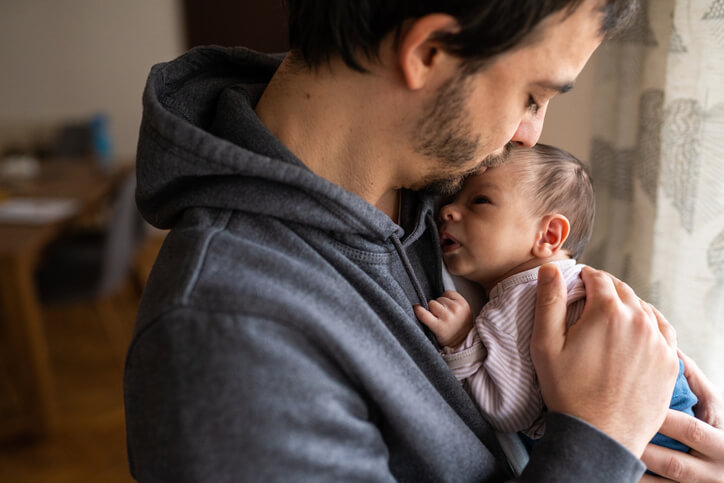The feeling of bringing your little one home for the very first time is indescribable. All those months of careful planning, hard word and patience have finally paid off — and your family-building dreams have come true.
But for parents who built their family through surrogacy, you’re probably worried about what to expect when you bring your baby home for the first time. Here, we’ll talk about some of the emotions that you might experience after meeting your little one.
Your First Week at Home
It’s common for new parents to have mixed emotions when they bring their baby home for the first time — so you’re not alone if you feel this way. Naturally, you’ll be nervous, just like any new parent would. And that’s okay. It’s possible to feel thrilled and uncertain at the same time.
You and your baby are going to go through a lot of changes during the first few months as you get to know one another. Even with all the parenting tips and books at your disposal, you might feel unsure of what to expect.
Here are just a few things that you should know during the first week:
- It’s okay to ask for help from friends and family.
- You’re going to need more diapers than you thought!
- You’ll probably feel overwhelmed and stressed with a new person to take care, so don’t forget to rest.
- After a bit, you’ll start to learn what your baby’s cries mean.
- It might take longer than you thought to get your bearings.
- You should take this time to build a support system.
If you need any other tips for bringing your baby home, remember that you can always reach out to your surrogacy specialist.
Bonding with Your Baby
Bonding is something that every new parent worries about — so you’re not alone. While this process may be more difficult as an intended parent, it’s not impossible. Remember: There are even some biological parents who have a hard time bonding with their baby, so please don’t be too hard on yourself. Bonding with your baby is already difficult enough, so try to be patient.
Difficulty bonding with your baby doesn’t mean that you’re a bad parent or that you messed up at some point during the surrogacy process. It just means that adjusting may take you a little bit more time than you had hoped.
Many adoptive and intended parents worry that their child won’t take to them or won’t recognize them as their parent. Because you did not carry them yourself, these fears might be even more pronounced. All of these feelings and emotions are understandable. But, with a lot of time, patience, and care, you and your baby will build a strong relationship in no time.
There are many ways for you to bond with your baby, even though you didn’t carry them — so if you need any tips, you can always ask your specialist.
The Difficult Emotions of Parenthood
Being a parent is one of the hardest jobs out there. If you feel stressed, overwhelmed or exhausted, know that you’re not alone. Many parents have been in your shoes, and know exactly what you’re going through.
It’s common knowledge that many new moms experience “the baby blues,” which can sometimes develop into postpartum depression. But did you know that the same can be said for intended parents?
The truth is that any new parent, no matter how they chose to build their family, can experience different forms of postpartum depression. In some cases, it can be just as severe or even worse for intended parents.
The factors of post-surrogacy depression can vary. You might be having trouble bonding with your child, or you might be emotionally exhausted and overworked. When you bring your baby home for the first time, you might feel emotionally exhausted and drained. Those feelings of excitement will likely take a lot out of you — and may make you more susceptible to serious mood disorders.
Some of the most common symptoms of postpartum depression include:
- Mood swings
- Irritability
- Loss of appetite
- Loss of interest in hobbies or activities
- Withdrawal from family and friends
- Thoughts of harming yourself or the baby
- Avoiding the baby
- Difficulty bonding with baby
- Frequent crying
If you experience any of these symptoms, please don’t hesitate to reach out for support. Post-surrogacy depression can be painful, but help is always available.
You aren’t alone! Many intended parents have had the experience of bringing their child home. These parents are ready to help give you advice and support. Connect through our Instagram today.
No matter what you’re feeling, we want you to know that you’re never alone. Your surrogacy specialist will always be here to support you. You can call us anytime, anywhere.
If you’re struggling with the emotions of being a new parent, please reach out to a specialist or a counselor for help.
